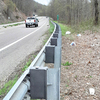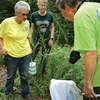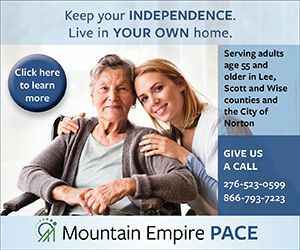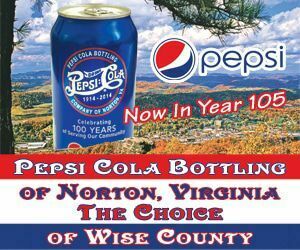Prosecutor explains rules, impact of state emergency
As you know, the governor of Virginia recently issued two executive orders in response to the COVID-19 pandemic. These orders require certain businesses to close and require Virginians to stay at home unless it is absolutely necessary, until June 10. A violation of these provisions is a Class 1 misdemeanor, which carries the possibility of 12 months in jail and/or a fine of up to $2,500.
The two executive orders are available online for you to read the full text of Executive Order 53 (referred to as EO53 which orders closure of certain businesses) and Executive Order 55 (referred to as EO55 which requires you to stay at home).
So, what does this mean?
(A) Stay at home:
Under EO55, Virginians must remain at home. It is a crime for you to leave your home unless one or more exceptions apply. There are several exceptions.
You can legally leave your home without criminal penalties for one of the following purposes:
(1) to obtain food and drinks (as permitted by EO53).
— Under EO53, grocery stores, department stores with groceries, and other retailers that sell food and beverage products are "essential businesses" and may remain open. You are permitted to leave home to go obtain food and drinks.
— Under EO53, all restaurants, food courts, and dining establishments must close dining rooms and indoor/outdoor congregation areas, but drive-thru, delivery and take-out options are still open. You can legally go to a restaurant without violating the order to pick up food, but you can't eat on the premises in a common dining area.
(2) to obtain certain essential goods (as permitted by EO53).
(a) Essential businesses are permitted to be open.
— Under EO53, several businesses are designated as "essential businesses" and permitted to remain open. You can leave your home to go to one of these businesses to obtain goods:
(i) Grocery stores, pharmacies, and other retailers that sell food and beverage products or pharmacy products, including dollar stores, and department stores with grocery or pharmacy operations;
(ii) Medical, laboratory, and vision supply retailers;
(iii) Electronic retailers that sell or service cell phones, computers, tablets, and other communications technology;
(iv) Automotive parts, accessories, and tire retailers as well as automotive repair facilities;
(v) Home improvement, hardware, building material, and building supply retailers;
(vi) Lawn and garden equipment retailers;
(vii) Beer, wine, and liquor stores;
(viii) Retail functions of gas stations and convenience stores;
(ix) Retail locations within healthcare facilities;
(x) Banks and other financial institutions with retail functions;
(xi) Pet and feed stores;
(xii) Printing and office supply stores; and
(xiii) Laundromats and dry cleaners.
(b) Non-essential and recreational businesses must close.
— Please note that under EO53, "non-essential" and "recreational" businesses must close. It is a crime for these businesses to be open because they cannot safely operate without potential spread of the coronavirus. It is a crime for you to leave your home to go to one of these businesses. Businesses that must close are as follows:
(i) Theaters, performing arts centers, concert venues, museums, and other indoor entertainment centers;
(ii) Fitness centers, gymnasiums, recreation centers, indoor sports facilities, and indoor exercise facilities;
(iii) Beauty salons, barber shops, spas, massage parlors, tanning salons, tattoo shops, personal grooming businesses, and personal care locations;
(iv) Race tracks;
(v) Bowling alleys, skating rinks, arcades, amusement parks, trampoline parks, fairs, arts and craft facilities, aquariums, zoos, escape rooms, indoor shooting ranges, public and private social clubs, and all other places of indoor public amusement.
— Please note, however, that "outdoor" public amusement is permissible provided that people do not gather in groups of more than 10 in one space at one time. Thus, "drive in theaters" are permissible so long as individuals do not leave their cars to gather in groups of 10 or more.
(c) Other brick and mortar retailers.
— Also, under EO53, some brick and mortar retail businesses are still allowed to be open. This might be a little confusing. Retailers that aren't designated as "essential" under paragraph 5 of EO53 (see the order) or "non-essential"/"recreational" under paragraph 4 of EO53 (see the order) may still be open, but they must limit the in-person shopping to no more than 10 patrons per establishment. An example of this type of business would be department stores or clothing retailers. It is lawful for you to leave your home to visit this kind of business.
(3) to obtain services (as permitted by EO53).
— Under EO53, businesses which offer professional services (example law offices, insurance agencies, accountants, etc.) are allowed to remain open. It is still permissible for you to leave your home to visit this kind of business and to obtain professional services.
(4) to seek medical attention.
— Under EO53, pharmacies and retailers that sell pharmacy products may remain open and you can leave your home to visit one of these businesses or to seek medical care.
(5) to seek essential social services, governmental services, or emergency services.
— Nothing in the governor's orders limit access to essential services for low-income residents, such as food banks or law enforcement operations.
— You can leave your home to go to the post office.
— You can leave your home to go to court or seek other essential government services. Please note, however, that most cases in court in Virginia scheduled between now and the end of April have been postponed. Before you leave home to go to court, you should check to make sure your case is still scheduled.
— Under EO55, all agencies that work to protect the health, safety, and well-being of Virginians who may be experiencing homelessness during the pandemic are permitted to operate in order to assist Virginians in avoiding evictions or foreclosures.
(6) to receive assistance from law enforcement.
— The governor's order specifically allows you to leave home to seek help from the police.
(7) to take care of other individuals.
— You may leave home to care for another person under EO55. For instance, you are permitted to leave home if you need to provide assistance or care for an elderly family member, neighbor, or someone else in need.
(8) to visit the home of a family member.
— You may visit a family member, but remember that private gatherings are prohibited if more than 10 people are gathered.
(9) to care for animals, pets, or livestock.
— Under EO53, businesses that provide feed for pets and livestock are considered "essential businesses." Thus, you may lawfully leave your home to visit one of these retailers. Under EO55, you specifically are permitted to leave your house to care for animals, pets, and livestock.
(10) to travel as required by a court order, custody or visitation order, or to facilitate child care.
— Under EO55, you are permitted to leave your home if you are required to travel because of a custody or visitation order and to facilitate childcare.
(11) to engage in an outdoor activity, including exercise.
— You must comply with social distancing requirements.
— All public beaches are closed, however, for all activity except for fishing and exercise.
(12) to travel to a place of worship.
— You may leave your home to go to church. Churches may still hold in-person services. However, the governor's office specifically has said that any in-person worship services must be limited to 10 persons or less. A lot of churches in our area are doing "drive-in style" worship services and this is permissible under EO53 and EO55.
(13) to go to work (provided that your business is permitted to be open and not ordered to be closed pursuant to EO53).
— It is unlawful for you to leave your home to go to work at "non-essential retail businesses" or "recreational businesses" that are required to be close under Paragraph 4 of EO53.
— It is lawful for all others to go to work, subject to the restrictions of social distancing and the 10 person rule if it is applicable.
(14) to travel to and from educational institutions.
— Please note that under EO55 all institutions of higher education must cancel all gatherings of more than 10 individuals and must cease all in-person classes and instruction.
(15) to volunteer with charitable work.
— Under EO55, you may leave your home to assist others and to volunteer for charitable work.
(16) for safety reasons.
— Under EO55, you may leave your home if you are in reasonable fear for your health or safety, at the direction of law enforcement, or at the direction of some government agency.
(B) Unlawful gatherings.
EO53 and EO55 prohibit you to gather with others in a group of more than 10 people. This applies to all public and private in-person gatherings of more than 10 individuals, inside and outdoors. The prohibition includes parties, celebrations, religious gatherings, and social events. Violation of this order is a Class 1 misdemeanor. This rule is subject to two exceptions.
The 10 person unlawful gathering rule does not apply to the following:
(1) Gathering of family members who live in the same residence; and
(2) Operation of "essential retail businesses" that aren't required to close by EO53:
— Essential retail businesses (see paragraph 5 of EO53), such as hospitals, clinics, grocery stores and pharmacies, are permitted to have more than 10 people in the place of business at the same time without violating the law.
Please support The Coalfield Progress by subscribing today!
You may also like:







